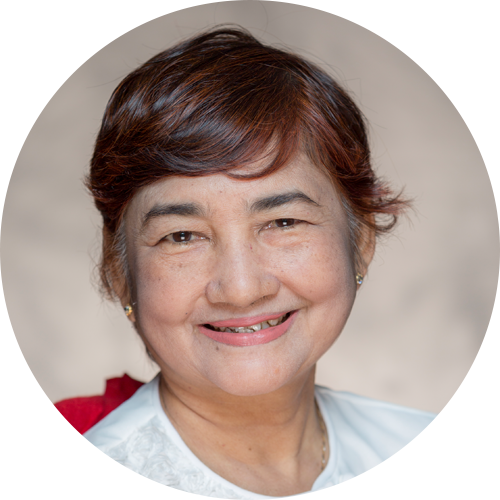Faced with rising COVID cases and escalating armed conflicts between the military and ethnic armed organizations, many people in Myanmar have had to rely on ethnic health organizations rather than government-connected public facilities for their health care. Myanmar’s fractured health system has been overwhelmed, pushing aside other vital needs—like sexual and reproductive health services.
To make the most impact during this challenging time, Ipas Myanmar has supported community COVID-19 relief efforts and continued to advance policies that expand sexual and reproductive health rights, collaborating with the private health sector to ensure people have access to the information and care they need.
Reaching people through the private health sector
To work around a collapsed central health care system, Ipas partnered with the private sector. For example, they used an existing partnership with Hlaingtharyar Development Network (HDN)—an organization supporting young factory workers in the Hlaingtharyar industrial zone—to hold regular virtual trainings on sexual and reproductive health and rights. During the third wave of COVID-19, Ipas provided personal protective equipment and hand sanitizer to the HDN and added COVID-19 information to trainings, such as COVID testing processes, quarantine practices and home treatment.
To fill service gaps left by dysfunctional public facilities, Ipas supported treatment of complications from unsafe abortion (known as postabortion care) through the Myanmar Medical Association and local community charity clinics. This enabled Ipas to ensure health workers have the latest knowledge and skills needed to provide quality postabortion care. Providing these services at charity clinics is critical for people who cannot afford services at private clinics and hospitals.
Ipas also joined ethnic health organizations and community-based organizations to support COVID-19 relief efforts in “internally displaced persons” camps in Northern Shan, Kachin, and Kayin State.
Making policy change a reality and ensuring safe access
Before the military coup in 2021, Ipas supported the Ministry of Health’s approval of new criteria for legal abortion (including survivors of rape and incest) by urging district-level hospital officials and providers to apply the new criteria immediately. Then Ipas collaborated with medical universities to develop guidelines to help providers understand the criteria for performing legal abortions.
Attending meetings organized by United Nations Population Fund and World Health Organization, Ipas has kept up to date on sexual and reproductive health and rights guidance and security concerns across the country, using that information to keep services safe for both providers and patients.

“Despite political turmoil and devastating COVID impact, we have strengthened partnerships and found ways to safeguard access to these vital services and advance sexual and reproductive health policy. The private sector’s response to the third wave of COVID-19 helped save lives while the government health system was barely functioning, and our collaboration with the private sector made abortion-related care possible at a time when it was getting pushed aside.”
Dr. Ni Ni, Ipas Myanmar director

